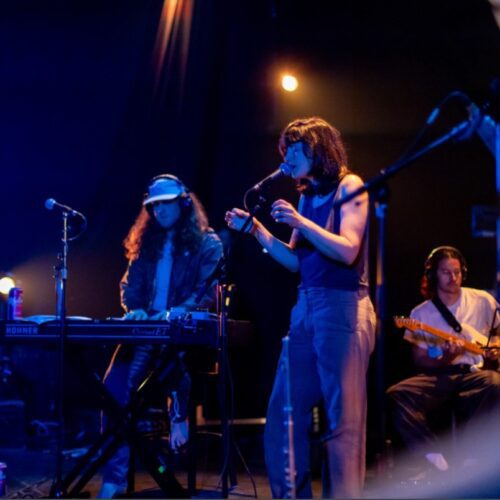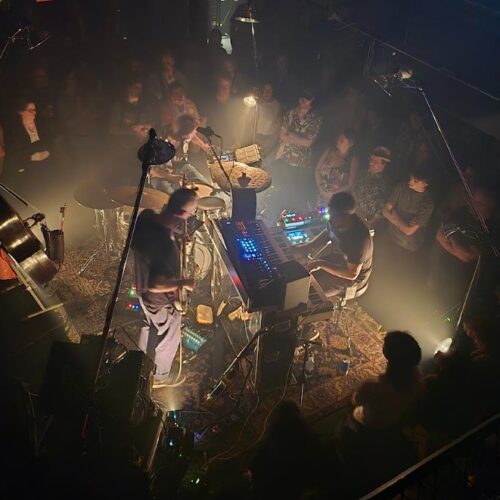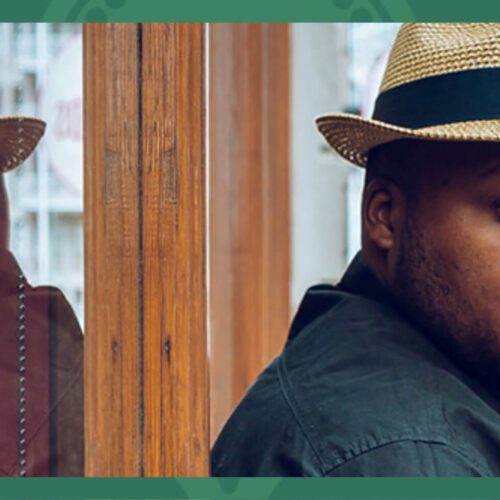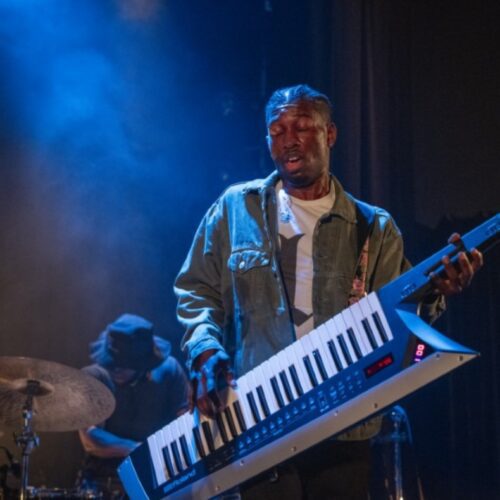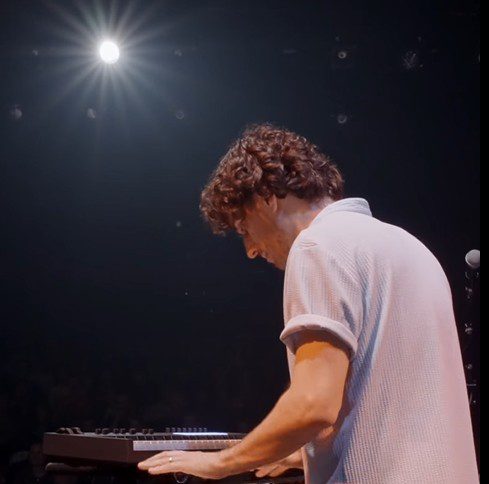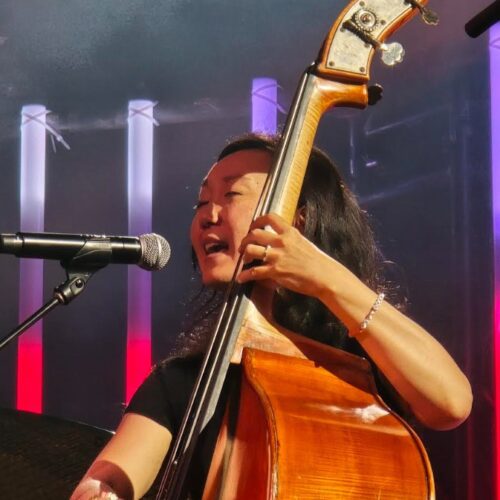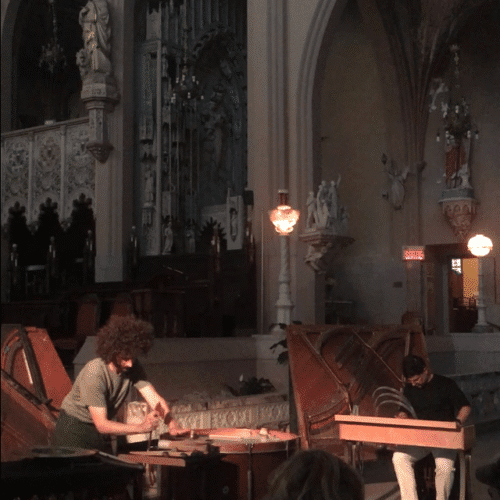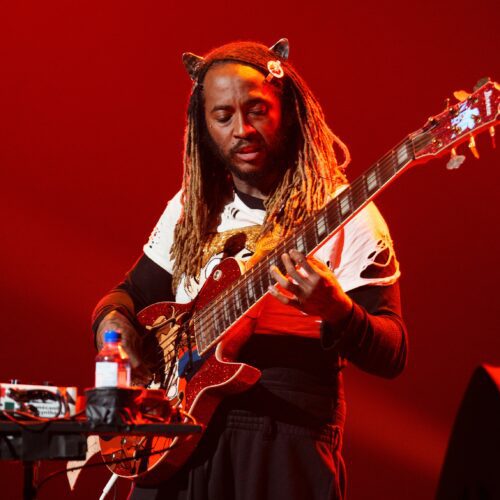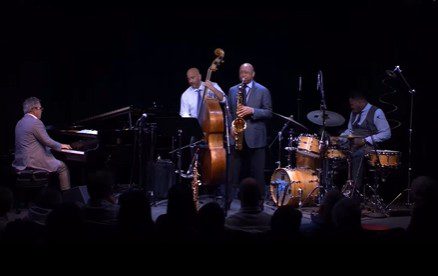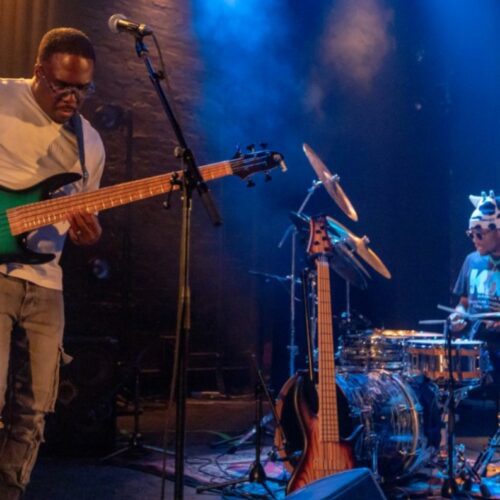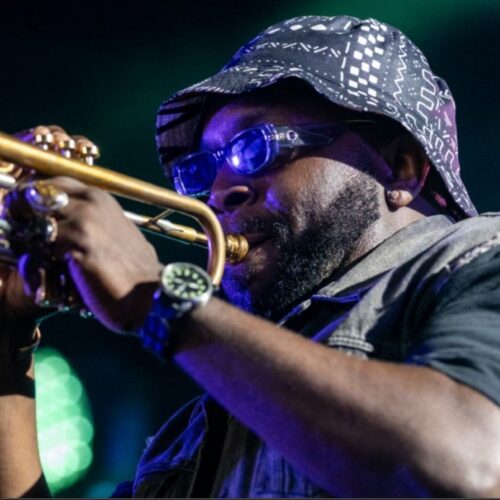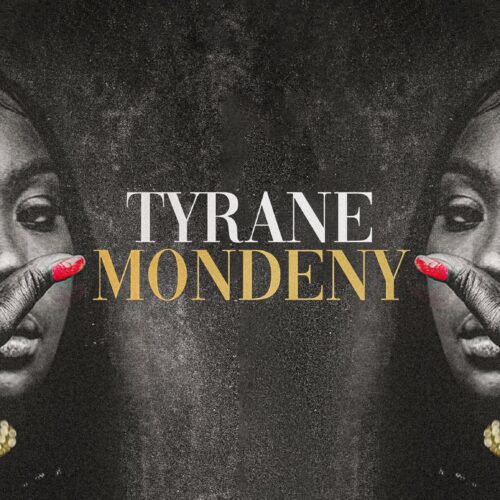“It is time to rebel,” concludes the renowned activist Greta Thunberg, in a speech quoted in the foreword to Notes on a Conditional Form. The 1975 started off on a high note, with a punk-rock feel and… we’re already elsewhere. Bifurcations, 180-degree turns, disjunctions, crossovers and superimpositions characterize this fourth studio album, admired by some, despised by others. Based in Manchester, the English band has made its mark by mastering an impressive variety of pop from other, more established styles. From punk to soul-pop, modern film orchestrations, country, housy pop, power-pop with grunge accents, orchestral indie folk, FM pop, and more. For the most part, the imitations are perfect and illustrate the very strong pop culture of their performers – Mathew Healy, guitars and vocals, Adam Hann, guitars, Ross MacDonald, bass, George Daniel, drums – not to mention their collaborators FKA Twigs, Phoebe Bridgers, Tim Healy, and Cutty Ranks. Rather than covering Justin Timberlake, Justin Bieber, Sufjan Stevens, The Weeknd, Michael Jackson, Green Day, Hans Zimmer, Phil Collins, Diplo, and Skrillex in turn, The 1975 composes in the manner of their influences without deviating from them one iota, without adding any particular touch. The band’s personality consists of a kind of stylistic leapfrogging, that’s the difference between this band and a very good cover band. This is also further proof that you can embrace pop, rock, soul and electro cultures at the same time. What’s up? When does a big hug become a strangling headlock? Are we witnessing the deployment of an unpredictable, eclectic know-how of highly predictable music?
Latest 360 Content
Concert review expérimental / contemporain/Jazz
FIJM | Fievel is Glauque For Dessert… Dessert loaded!
By Alain Brunet
Interview Soul/R&B/Jazz
FIJM | Alexis Lombre and the Holy Spirit in the South Side of Chicago
By Alain Brunet
Concert review Americana
FIJM | Allison Russel’s Apotheosis Concert in Her Hometown
By Michel Labrecque
Concert review
FIJM I Best Dressed, Most Possessed: Fantastic Negrito Stupefies Rogers Stage
By Stephan Boissonneault
Interview Africa/Hip Hop/Jazz/Soul/R&B
Nuits d’Afrique | Immersion In The World of Stogie T
By Michel Labrecque
Concert review Jazz
FIJM | Anomalie and Lettieri: A New Musical Friendship, Developing in Real Time
By Harry Skinner
Concert review Jazz
FIJM | Linda May Han Oh, A Role Model for Female Double-Bass Players
By Alain Brunet
Interview latino/Rock
Nuits d’Afrique | La Chiva Gantiva As Seen by Rafael Espinel
By Michel Labrecque
Concert review Soul/R&B/Hip Hop/Jazz
FIJM | Thundercat, A Feline on The Loose
By Jacob Langlois-Pelletier
Concert review Africa
FIJM | Queen of Afrobeats, Ayra confirms her status as a Global… Starr
By Sandra Gasana
Interview Classical/classique
Festival de Lanaudière | Leonardo Garcia Alarcon/Monteverdi’s Coronation of Poppea: being marketwise
By Frédéric Cardin
Interview Africa/Mandingo Blues
Nuits d’Afrique 2025 | Tyrane Mondeny Presents Her Mandingo Soul
By Sandra Gasana
Concert review Folk/Americana/Jazz/Soul/R&B
